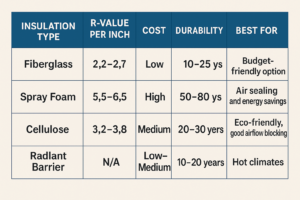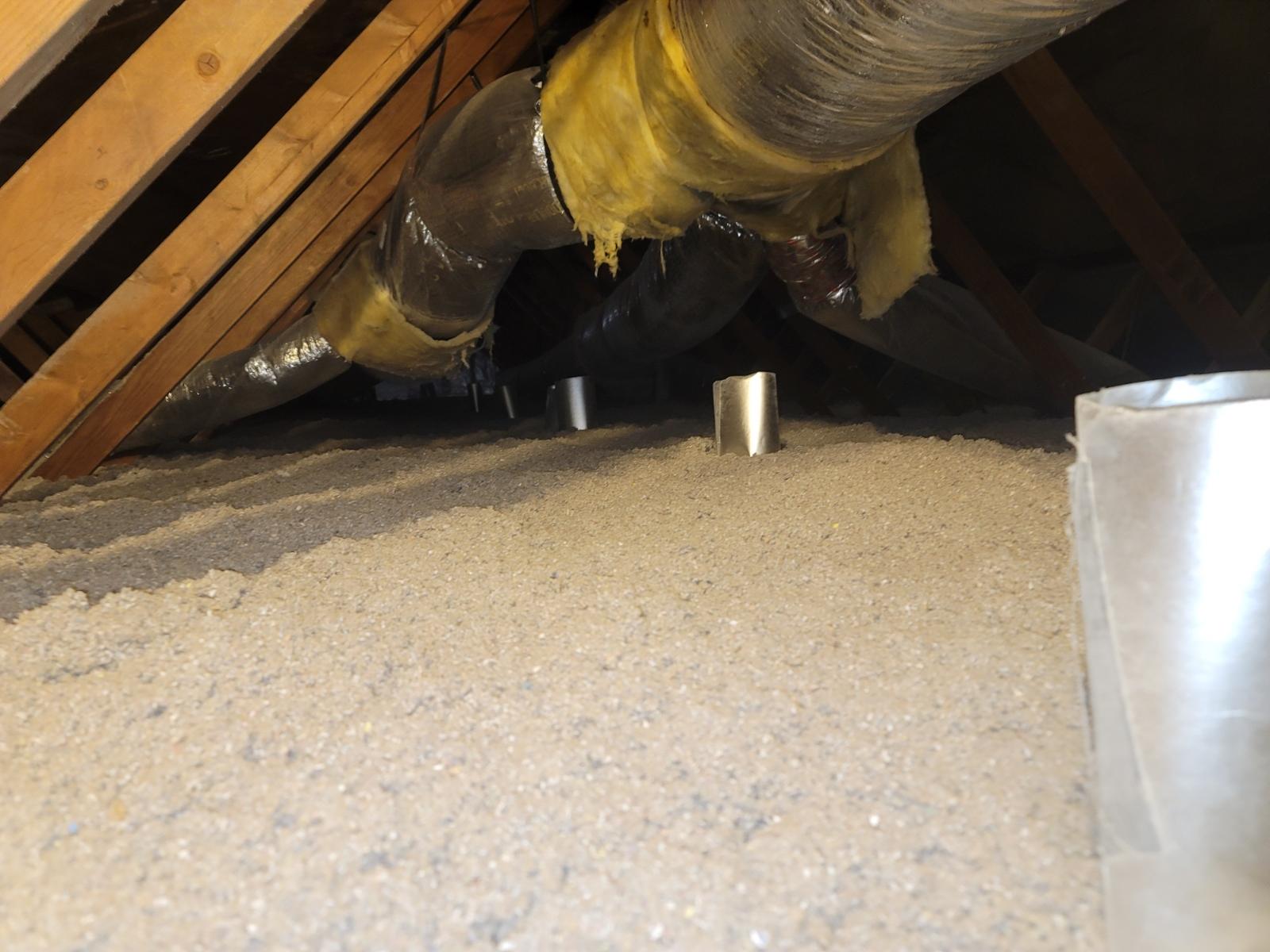Proper Attic insulation plays a vital role in attaining a comfortable living space inside the house and managing its air quality. Not correctly insulating the attic can result in temperature changes in addition to increased energy costs.
Did you know? According to estimates, improving a home’s energy efficiency not only helps save surplus energy expenses but also fosters a health-friendly household. Proper cleaning of the home’s insulation also helps in the clean airflow inside it. A professional contractor like My Insulation Guy offers insulation services and becomes your helping hand in making your home more comfortable.
In this guide, we will understand how Attic insulation can improve home comfort and indoor air quality. So, stay connected till the end!
What is Attic Insulation?
To put it simply, attic insulation helps keep the heat inside the home in winter and prevents external heat from coming in during summer. This helps maintain a comfortable home temperature and also relieves the burden on cooling and heating appliances.
Most Popular Types of Attic Insulation
Your home’s location and its requirements will affect the kind of attic insulation it uses. The following are the common types:
- Fiberglass Insulation: It comes as a batt or loose-fill. It is made with tiny glass fibers and is relatively effective as an insulator. However, improper sealing might release the glass fibers and cause irritation.
- Spray Foam Insulation: When wet, it expands to fill gaps. It is an excellent air sealer and dramatically reduces air leakage. This aids in maintaining a steady temperature inside the home and helps in keeping the air contaminants outside.
- Cellulose Insulation: It is effective against airflow and is made from old paper products that have been treated to be fire-resistant. Although it does a good job of blocking dirt and allergens, if damp, it can encourage mold growth.
- Radiant Barrier Insulation: It is helpful for warm climates since it bounces heat instead of soaking it up. It does not aid in air quality but maintains temperature consistency indoors.
Advantages of Correct Insulation
Eco-Friendly and Economical
A proper attic insulation prevents HVAC systems from overexerting, resulting in reduced energy expenses. In terms of heat retention, a home’s attic alone can account for as much as 25% of a household’s energy expenditure.
Enhances the Quality of Air
Insulation helps prevent unwanted external pollutants and allergens from entering a structure and maintains cleaner indoor air quality. Proper moisture control also aids in inhibiting mold growth.
Better Control of Temperature
The correct insulation helps avoid cold draughts and cold spots, ensuring stable, comfortable temperatures all around the house.
Reduction Of Noise Levels
Insulated attics are able to block external noise, keeping the interior of the house much quieter.
Choosing the Best Attic Insulation
When choosing the best attic insulation material, R-value, eco-friendliness, moisture resistance, and environmental considerations all play important roles.
Factors to Consider
- R-Value: This is an insulation rating that quantifies value. It shows the difference between a building’s energy needs and its efficiency. High R-values demonstrate better insulation efficacy.
- Moisture Resistance: This helps prevent mildew and mold build-up.
- Environmental Attributed: Cellulose is an eco-friendly insulation that has a reduced environmental footprint as it is manufactured from waste.
- Lifespan: Some types of insulation materials have shorter lifespans. An example is spray foam insulation, which can persist for up to 80 years.
Consulting an Insulation Contractor
Hiring a specialised insulation contractor guarantees that the installation and materials used will fit your house’s requirements. A professional insulation can evaluate your home’s current insulation and suggest better solutions.
How to Search for an Insulation Installer Near You
When looking up local contractors under ‘insulation installers near me‘, keep the following in consideration:
- Locate Training: Make sure they possess relevant training and qualifications alongside prior work experience.
- Check Feedback: Look over available reviews, and also make sure to ask for referrals.
- Comprehensive Services: Choose companies that provide evaluation and diagnostic services. The ideal contractor should also provide aid after installation.
- Warranty: A reputable installer should provide a warranty for their work
Comparing Attic Insulation Types

Act Now to Achieve a Cozy and Healthy Home
When you properly insulate your attic, you will have more comfort in your house, lower energy costs, and even better air quality. A good attic insulation company like My Insulation Guy will offer you the best insulation options for your home and install them properly. For more options and details, visit our website or contact us.
FAQs
- How does attic insulation improve indoor air quality?
Insulation reduces outdoor pollutants and allergens to enter the house and contributes to a healthier indoor environment.
- What is the best type of attic insulation for energy efficiency?
The most efficient insulation is spray foam due to its superior air sealing and thermal resistance.
- How often should attic insulation be replaced?
With proper care, insulation can last for up to 20-30 years, but routine inspections to check for damage or degradation are encouraged.
- Can I install attic insulation myself?
Although attainable, DIY installation can lead to insulation gaps and coverage issues that professionals can address.
- What are the signs that my attic insulation needs replacement?
Fluctuating indoor temperatures, rising energy costs, and visible mold or moisture are signs that insulation may need replacement.

